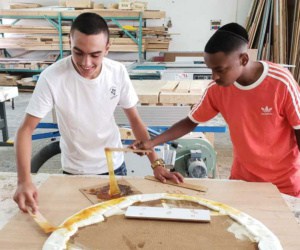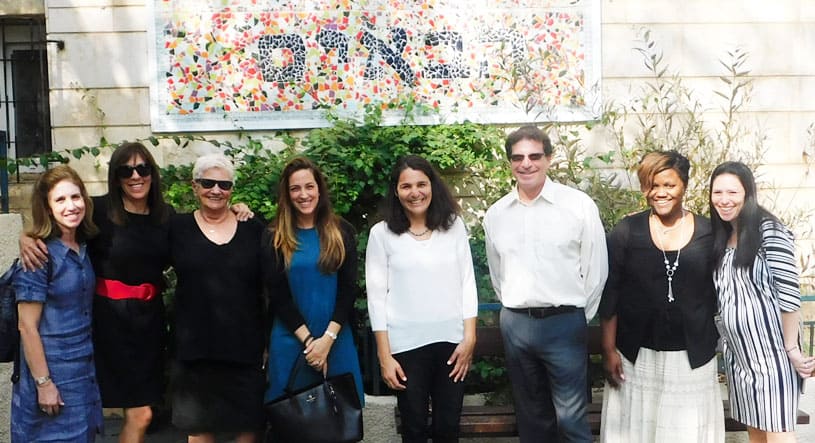What sets AMIT apart from other educational networks in Israel? That question was the driving force behind a whirlwind mission to Israel that Joel Silberman and Liron Yadin, AMIT’s new associate regional directors for Florida and Los Angeles, took part in over four jam-packed days in October. They traveled to Israel with Debbie Lyman, AMIT’s director of operations, and their staff members, Joy Williams and Harriet Proval.
Both Joel and Liron had been to Israel before, but this was their first time visiting in their capacity as part of the AMIT professional team. Both of them said that the mission—which included visits to more than a dozen AMIT schools in several cities—opened their eyes to different elements that are key to AMIT’s success, paramount among them being the personalized attention given to each child.
“The passion, the commitment, and working with kids individually and not just trying to pass them through a system—I think that’s what I saw the most,” said Joel of the experience.

The mission got underway on October 8 with an overview of the AMIT network at the Gogya teacher-training center in Ra’anana—the innovative hub where the network’s cutting-edge educational methods are developed. There Liron and Joel and their regional staffs got a taste for the combination of outstanding academics and Jewish values, or what Liron called “AMIT’s paradigm shift” in the approach to education.
In addition to the personal attention and the investment the teachers and staff make in the students, what I really gained an understanding of, from seeing it firsthand, is the concept of Gogya,” said Liron.
Whether in Beersheva, Ra’anana, Jerusalem, or Petach Tikva, the mission participants got to see the Gogya philosophy in action at the different types of AMIT schools—religious, secular, vocational, and traditional junior and senior high schools.
“It’s hard for people to understand [the concept], but once you see the physical space that allows the students to engage in Gogya-type learning, you understand that it’s very forward-thinking,” said Liron, adding that it’s not just the physical spaces—glass walls, colorful modular furniture, smart tables—that have an enormously positive impact on the students.
“Every single detail is thought out—every single interaction with the students is all about positivity, building them up, telling them they can,” she said. “It’s about giving them the freedom to feel like they’re empowered to be the decision-makers when it comes to their own education.”
Going to the schools also enhanced Joel’s perception of what AMIT is doing on the ground. “I learned how important education is to everybody and how passionate the principals and the teachers are—and how they want to help every child and consider the whole person.”

He said that even at the bigger schools they visited, each principal knew the children. “Everyone knew everybody; even in larger schools it wasn’t so impersonal like it is in our schools here,” said Joel.
Another aspect of the network that Joel found inspiring were the so-called last-chance schools they visited, where they got to see how AMIT nurtures children from broken homes or those who suffered neglect, and how these kids are able to turn their lives around when they have unwavering support. “These schools really worked hard to have these young men and women attain productive lives in Israel,” said Joel.
Liron, meanwhile, added that the Gogya concept is also successful in helping children at these schools forge a successful path for the future. By teaching them critical 21st-century life skills and giving them a vocation, AMIT is able to “engage these young men and women in a way that is meaningful and productive and that can prepare them to succeed in their future.” That, after all, is what AMIT is all about.





